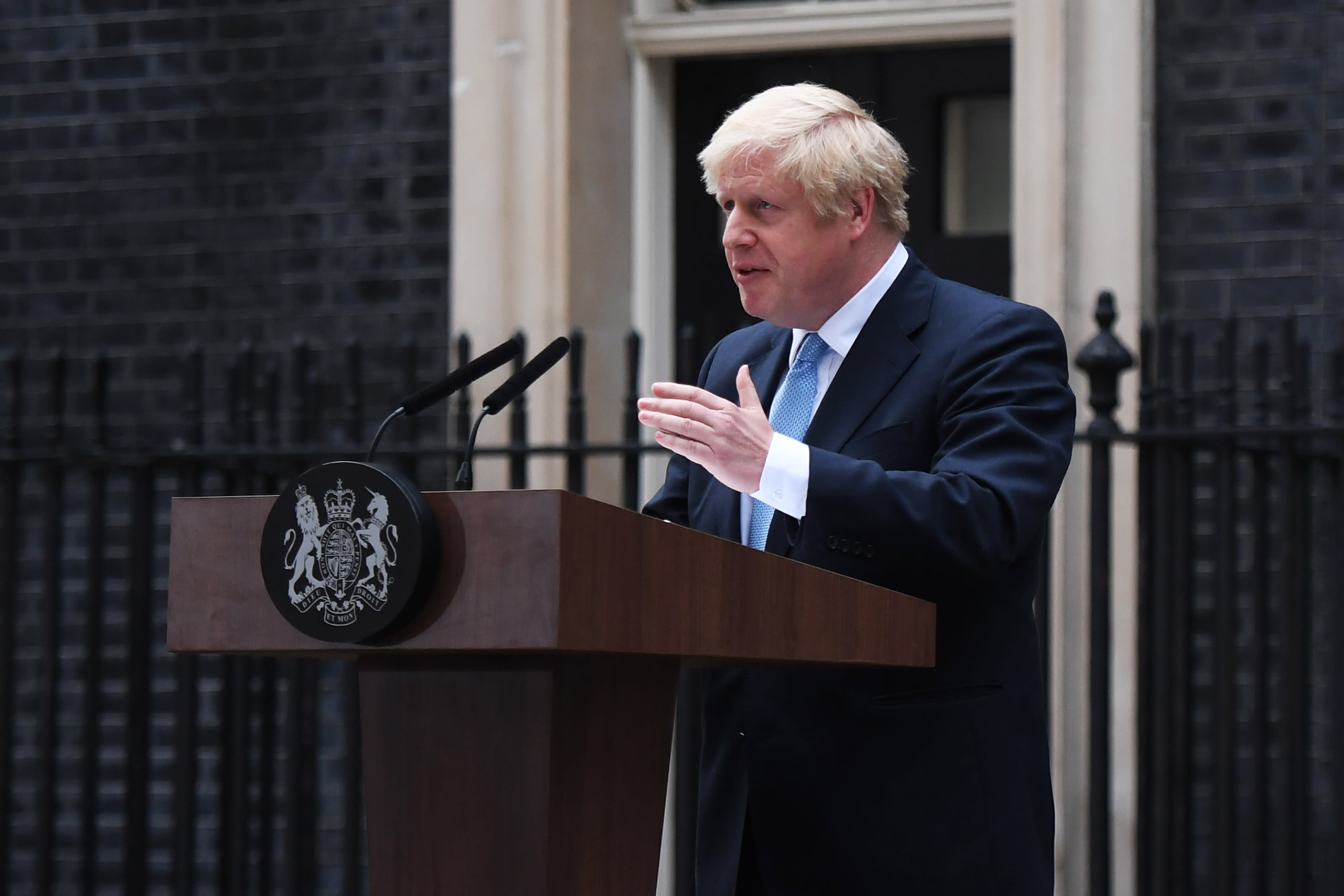Hits: 21

British Prime Minister Boris Johnson delivers a speech at 10 Downing Street on September 2, 2019 in London, England.
Chris J Ratcliffe | Getty Images
Britain’s opposition Labour Party will not support any attempts by Prime Minister Boris Johnson to call for a national vote before the Brexit deadline expires at the end of the month, U.K. Shadow Justice Minister Yasmin Qureshi told CNBC.
Qureshi, who is a Labour member of parliament for Bolton South East, claimed Johnson was counting down the time so that he could take the United Kingdom out of the European Union without a deal in place.
The U.K. leader, a pro-Brexit politician who became prime minister in July, had promised on Monday that the the U.K. would leave the EU on October 31 — “no ifs and no buts.”
But Qureshi told CNBC’s “Squawk Box ” on Wednesday: “Everybody knows that once you Brexit without a deal, there’s going to be serious economic problems with our country.”
When asked if Labour would be agreeable to a snap election in the coming weeks, Qureshi said, “No, we wouldn’t be. No, that’s what (Johnson) has been saying.”
A snap election could potentially help Johnson hold on to what he perceives as the option of a no-deal Brexit.
Officials at 10 Downing Street have told British media outlets that October 14 or 15 would be a likely date for a potential election, but the government would need the votes of two-thirds of parliament to bring that plan into effect. As things stand, the U.K. is set to leave the EU on October 31.
“We’re not going to allow (Johnson) to maneuver us … into a general election on the 14th,” Qureshi said, explaining that voters may not understand the full consequences of Brexit before the approaching deadline at the end of the month.
“If he wants to have a general election later in the year, fine, but we’re not going to allow him to use us for that. We’re happy to have a general election, but we don’t trust him,” she added.
Many Labour MPs see a snap election as a “trap” that could allow Johnson to implement a no-deal Brexit during the campaign, Mujtaba Rahman, managing director for Europe at political consultancy Eurasia Group, wrote in a note.
“They fear he could use the PM’s powers to change the election date to November, with Parliament unable to stop the UK crashing out on 31 October, because it would have been dissolved for the election,” he wrote.
Labour leader Jeremy Corbyn said while he was ready to fight an election, his priority was to prevent a no-deal Brexit.
Rahman added that one way or another, there is an election coming in the near future, with Eurasia Group putting it at a 45% probability.
Controlling Brexit
On Tuesday, a majority of lawmakers, including opposition politicians and so-called “rebel” members of the ruling Conservative Party, voted to take control of parliamentary business from the government.
That could, in theory, allow them to push through legislation, which could block government efforts to withdraw the U.K. from the EU without a deal by the end of the month. A second vote is set to be held as early as Wednesday on the legislation, and, if passed, it would pressure the prime minister to request another extension to the U.K.’s departure date — to January 31, 2020.
For his part, Johnson said he would immediately call for a snap election if the second vote passes.
A no-deal Brexit scenario is not very popular beyond a sizable number of Conservative Party members of parliament, activists and voters, according to Ben Wellings, a senior lecturer in politics and international relations at Australia’s Monash University.
But, a snap election poses a significant risk because the opposition is not fully united on its stance towards Brexit, he told CNBC’s “Squawk Box.”
“I think what we’re most likely to see is a kind of Labour/Scottish Nationalist/Liberal Democrat/Green coalition very much focused on preventing a no-deal Brexit, and renegotiating something with the EU,” Wellings said.
“But, even within those opposition parties, there are parties like Liberal Democrats, Scottish Nationalist (that) want to stay in. Labour is equivocal on whether it wants to remain in the EU or get out. So, its prospects are pretty dark as well,” he said.
He explained that ultimately, the U.K. could end up in a position not too dissimilar from the deal that former prime minister Theresa May had proposed — one where it would be out of many of the EU’s institutions, but still be part of a single market. “That idea would be to mitigate the economic shock of a no-deal Brexit whilst actually respecting the majority wish to leave most of the EU’s institutions.”
“It’s kind of a half-in, half-out, but there’s a long way to travel before we get to that position,” Wellings added.
Still, it remains to be seen if Brussels would agree to extend the October 31 deadline to January 2020, if the U.K. puts forth such a request. According to Wellings, the EU has been “remarkably unified” over Brexit, particularly protecting its member state, the Republic of Ireland. The Irish backstop has been a major sticking point in ongoing negotiations between the U.K. and the EU.
Qureshi told CNBC while she prefers the current agreement between the U.K. and the EU, she can accept a Brexit scenario that comes with a deal in place. The lack of one is “catastrophic for our country,” she said.
— CNBC’s Holly Ellyatt contributed to this report.
Be the first to comment